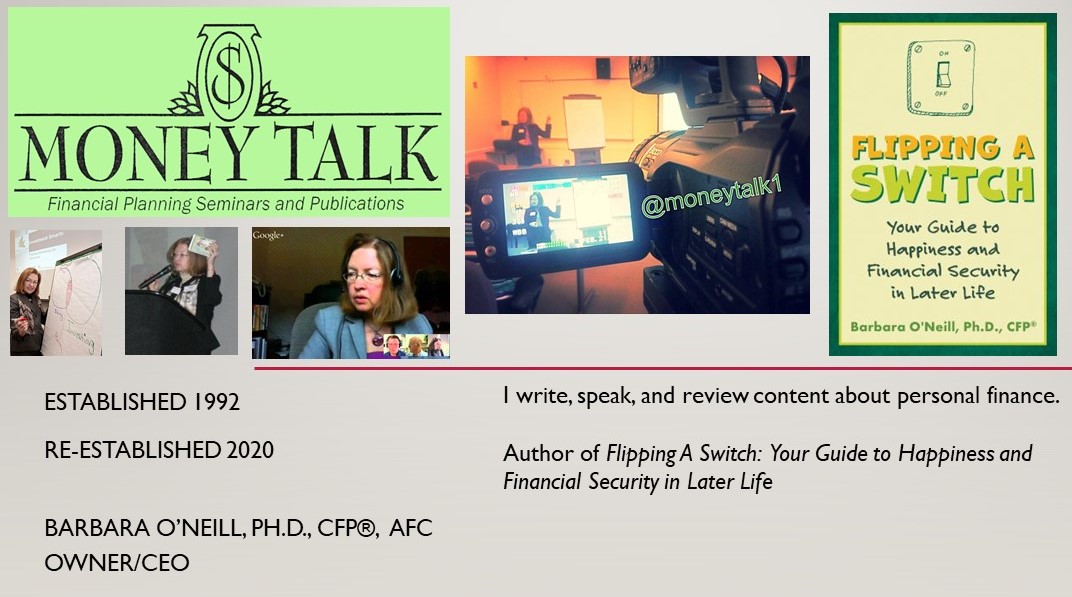A frequently used quote is that “nothing is certain in life except death and taxes.” One of the topics that I wrote about in my book, Flipping a Switch: Your Guide to Happiness and Financial Security in Later Life, is having a “good ending” to your life.
But what exactly does that mean?
For many people, a “good
ending” means dying in peace, preferably at home with loved ones nearby. In
addition, most people want a “Niagara Falls” death versus a long period of
decline. In other words, to live well for as long as possible and then “go over
the edge” and die quickly.
Other hallmarks of a “good
ending” to life include the following:
Organized Financial Records- Prepare a “financial center” (e.g., desk drawers) for documents like
insurance policies; recent income tax returns; bank, investment, and credit
card statements; and copies of a will, living will, etc. Make sure trusted
parties have access, if needed.
Personalized Financial Statements- Provide trusted parties with a current net worth (assets minus debts) and cash flow (income minus expenses) statement, contact information for financial advisors (e.g., lawyer, insurance agent, etc.), and login information for digital assets.
Advance Directives- Contact an
attorney to prepare a living will and health care power of attorney. Doing this
will avoid “hospital hallway huddles” by stressed out relatives and ensure that
your personal wishes regarding end-of-life care are respected.
Buried
Hatchets- Reach out to estranged
family and friends with words like “thank you,” “I love you,” “please forgive
me,” and “I forgive you” before it is too late. Apologize to those you love if
you hurt them and tell friends and family how much they mean to you.
Post-Death
Instructions- Leave
instructions for a memorial service agenda and charitable tribute contributions
and select and prepay funeral and burial services. Another way people can take
charge of their personal “ending” is by writing their own obituary.
Recently, I witnessed and personally experienced four features of a bad (financial) ending:
Financial
Infidelity- Don’t lie or withhold financial
information. Doing this erodes trust and makes it very difficult for family, heirs,
and fiduciaries (e.g., executor) to move forward.
No
Financial Statements- Don’t force
your loved ones to be “forensic accountants” and have to reconstruct your
finances from statements and a checkbook register. It is not easy to do!
No
Funeral Plans- Don’t force a
family member to have to unexpectedly put a 4- or 5-figure cremation or funeral
bill on a credit card because no plan or set-aside funding was available.
No
Digital Assets Inventory- Leave a
list of logins for digital devices and online accounts. Don’t force your
survivors to try to track this data down or permanently have to live without
it.
Bottom line:
Make the time, while you are able, to take actions that increase the liklihood of having a good ending to your life. It is a gift to yourself and your family.






No comments:
Post a Comment